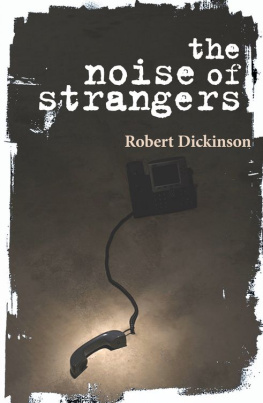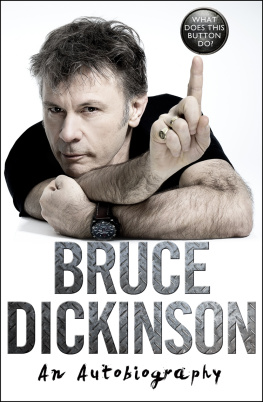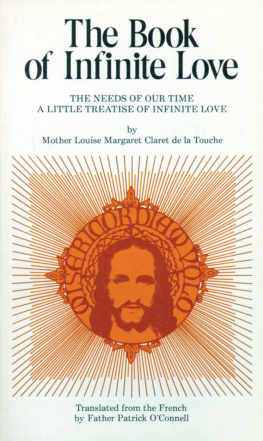Thou shalt bring down The Noise of Strangers, as the heat in a dry place; even the heat with the shadow of a cloud.
Denise
Denise hated the drive home. At night, driving across town was as bad as driving through the countryside. Once through the security gate at the bottom of Southover Street the only visible lights were the squatters campfires on the Level. Except at a checkpoint or guard post the roads would be black, the pavements lost in shadow, with only the occasional candle in an upstairs window to show they were passing houses where people lived. Their own house was only a few miles away, but the journey always inspired the same nausea.
And then there was Jack. This is the kind of nonsense I mean. Denise didnt know what he was talking about. I mean, this can add, what, ten minutes to the journey.
She realised he was talking about the new one-way system. You cant complain, she said, although she knew he always would. You designed it.
Jack tutted and turned right, heading towards the Lewes Road. Actually, this one was Alans.
But you approved it.
Thats not the point. Oh, bloody hell. He braked sharply. At the top of the Level the traffic lights were still working, and showed red. He stopped, even though it was after midnight and there were no other cars on the road. Denise said nothing. The way Jack followed rules when there was no need was one of the things they argued about. Jack would say that he was maintaining standards, setting an example. Denise thought it was safer to keep moving.
The squatters worried her. She knew they were harmless, that they would drink their moonshine, sing their hymns, and then wait, as they did every night, for the end of the world. In the morning T & E would drive them back into the slums around Russell Street, where they would sit on the pavements until it was dark enough for them to return, when they would once again drink their moonshine and sing their hymns. Denise was not scared of the squatters themselves: what made her uneasy was what they represented. She thought she could remember a time when, except for a few known tramps, the Level was empty at night.
Look at them. Jack glared at the campfires. Useless scum. His anger was at more than the squatters or the one-way system, but Denise was too tired to care about its real object. Jack was always angry at something. Sometimes he pretended it was amusement or scorn or principled outrage; for now it was just anger.
The lights changed. He headed towards London Road, passing the boarded-up windows of Baker Street. I suppose youd prefer it if we lived in Hanover.
You know I would. Hanover was something else they argued about. It was the ward where, somehow, everybody they knew lived. At least once a week they would make this journey to some dinner party or other. You have to admit it would be more convenient. Denise could have said more but was distracted by the stray dogs prowling outside the shell of the old Co-op building. There was supposed to be a nest of them, if that was the word, in the basement. Supposed to be: one of the rumours that, in this town, passed for knowledge. The council had plans for the building: another depot for Transport and Environment, or a holding centre for Welfare anything to stop the rot spreading north from the Russell Street slums. At least we could walk home afterwards, she offered. Youd be able to drink. And she would need to drink less.
The houses are too small. Jack frowned into his rear-view mirror. And wed have to listen to Alan and Margaret arguing every night.
The tiredness was like a weight behind her eyes. Where did he get this idea? Alan and Margaret dont argue.
No? He took a left up New England Road, towards the looming Victorian viaduct on which Denise could remember having once seen a train. Shed been a child; it might have been the first train shed seen, though sometimes she wondered if shed seen it at all, or simply been told about it so often she now believed she had. She wondered if dwelling on this kind of uncertainty was a sign of age. Or was it the wine? There had been seven people and five bottles of wine; Siobhan hadnt drunk any, Jack had nursed the same half-glass the whole evening, Alan and Margaret and Tim and Louise She made the familiar, depressing calculations. Jack sighed through clenched teeth. Did you see that graffiti? Couldnt even spell Henderson properly. Denise looked, but the words were behind them now, and the walls ahead were covered with posters bearing a cross, the sign of the Helmstone mission. There were no words, but then most of the Helmstoners couldnt read, and werent so different from the squatters on the open ground. They didnt drink, lived in houses and sang different hymns, and most of them had low-level council jobs, but they waited for the end of the world as fervently as any of the derelicts on the Level. Denise almost envied them their hope. She knew the world was not going to end: it would grind on and on until they and all their dismissive taxonomy (Stoner, Scoomer, squatter, scum) were dead and forgotten. And how can you say they dont argue? Jack asked. Denise forced herself to concentrate: he was still talking about Alan and Margaret. They barely spoke to each other.
Thats not the same as arguing.
So you think theyre happy?
I dont know. But they dont argue. Denise wondered how Jack could be so wrong. Alan and Margaret were too intent on presenting themselves as a successful couple to disagree in front of outsiders. And I dont know where youve got the idea they do.
Dont you? They stopped for more lights. Again there was no other traffic in any direction. For crying out loud. This is the kind of thing I mean. This time she couldnt tell what he was talking about: the pointless lights or her lack of perception, or something else he expected her to guess. His anger was indiscriminate. He turned to her. Alan can be such a bastard. The way he carries on with Louise. And Margaret is sitting right there.
Tim doesnt seem to mind.
Tim doesnt seem to notice. Heres Alan, flirting outrageously with his wife, and hes I dont know what hes doing.
Lights.
Right. He eased across the junction, where, surprisingly, more traffic had appeared: two dirty white Fiats, Scoomer cars, spluttering up from the other direction. The passenger of one was leaning from his window, as if trying to climb out. He shouted at them and waved, laughing. Both cars weaved as they headed away.
Careful, Denise said.
They werent a problem. Jack, for once, sounded tolerant. Theyre gone now.
Denise couldnt relax until the cars were out of sight. Theyre dangerous because they dont care. Henderson voters.
If theyre Scoomers theyre Labour. Besides, I dont think they were old enough to vote. Jack checked the rear view again. He might have pretended to be unconcerned, but he didnt want those cars to turn round either. They drove on for a few seconds without talking. Then Jack sighed. Alan is such a bastard. So he was back on that hobby horse. Thats












![Mother Louise Margaret Claret - The Sacred Heart and the Priesthood (with Supplemental Reading: Devotion to the Sacred Heart) [Illustrated]](/uploads/posts/book/269773/thumbs/mother-louise-margaret-claret-the-sacred-heart.jpg)




